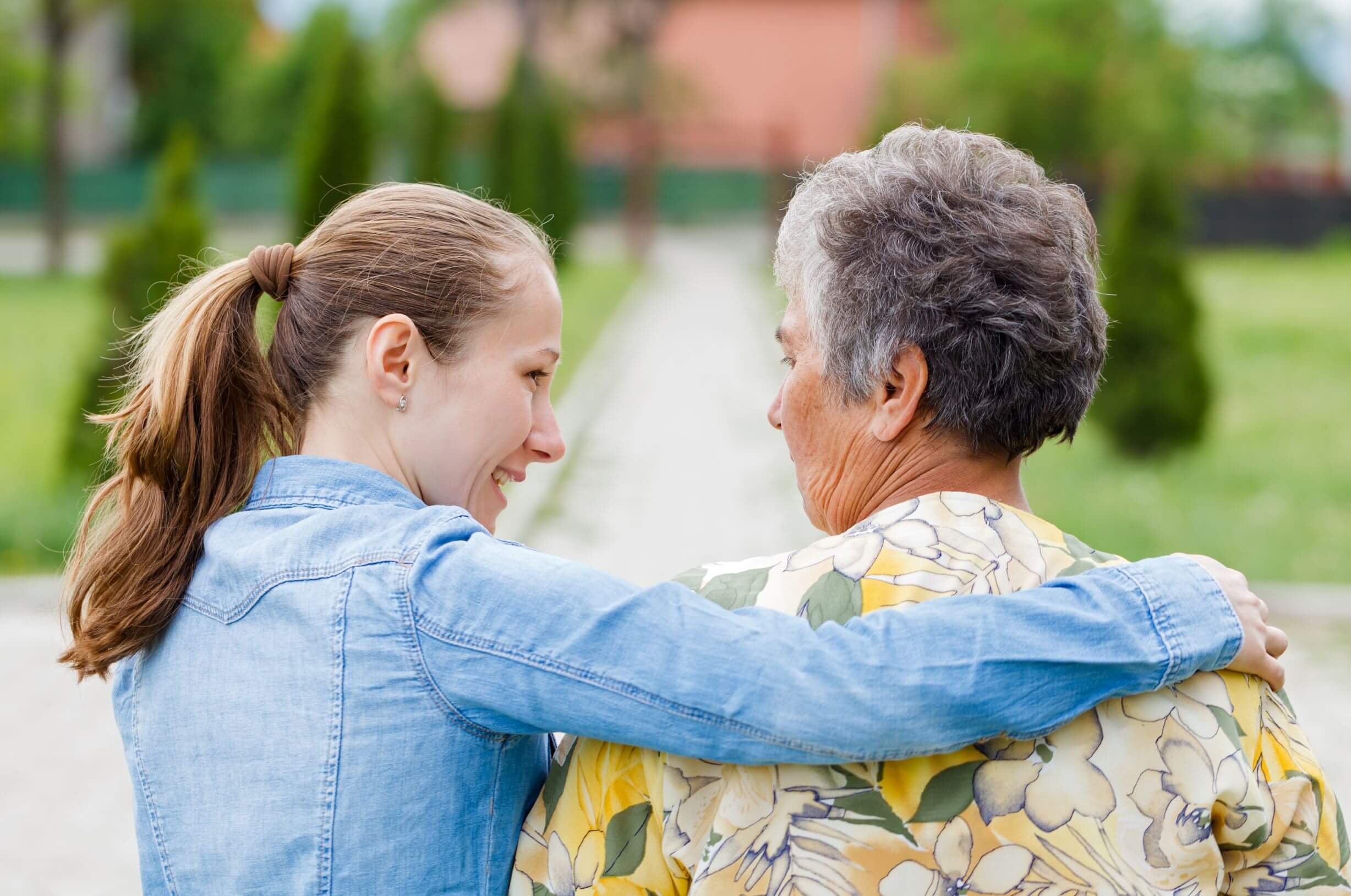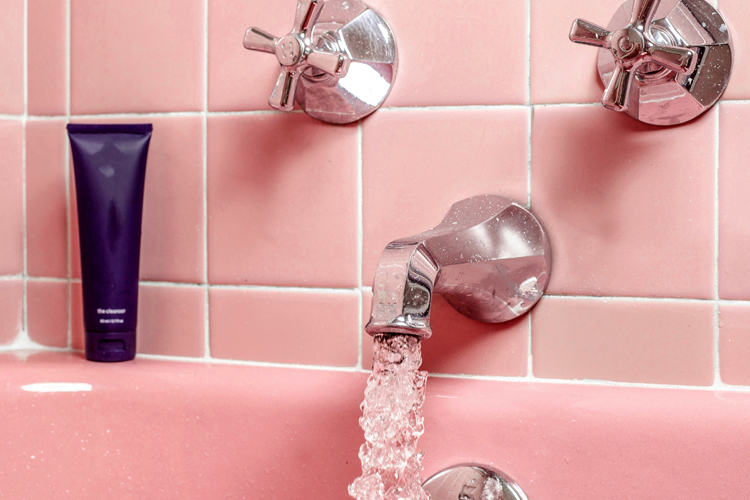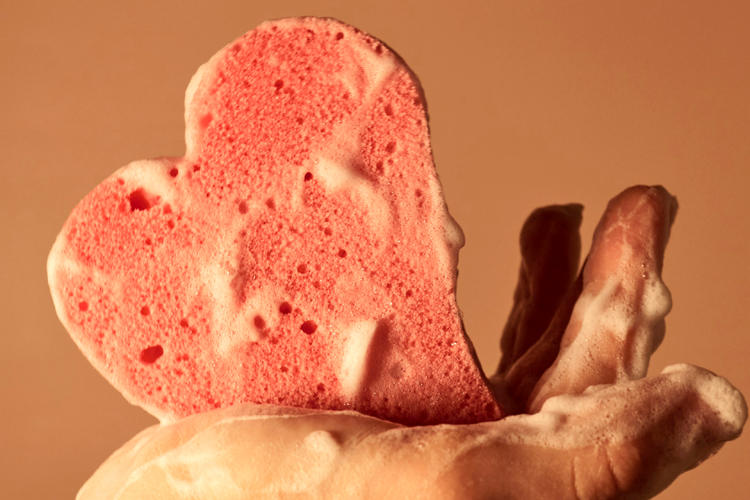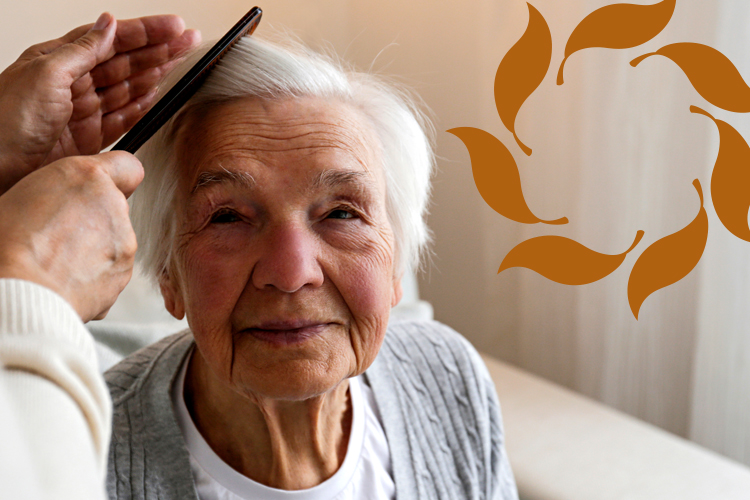
Posted: March 22, 2024
One of the challenges of caring for an aging parent is addressing personal hygiene issues like a reluctance to bathe. Personal hygiene is an essential part of good health and if your parent neglects this area of their life, it may be a sign of underlying health issues like depression or the onset of dementia. You can help an elderly parent who doesn’t want to bathe by first understanding the common reasons seniors avoid bathing and then having a compassionate conversation with them about their hygiene needs.
There may be many reasons your aging parent doesn’t want to bathe or shower. Rather than seeing their reluctance as a behavior problem, consider it an expression of an unmet need. The goal then becomes to identify and meet the need, rather than to battle over bathing.

Some seniors avoid bathing out of fear of falling. Their vision may not be as clear as it once was, and they may feel unsteady standing in the shower or stepping in and out of the tub. Loss of mobility, muscle mass, and arthritis may make bathing or showering painful or difficult. Your parent may be reluctant to ask for help because they are embarrassed, because they are afraid of losing their independence, or because they don’t want to be a burden to others.
Dementia may cause an aging parent to forget to bathe or think they have bathed when they haven’t. Some forms of Alzheimer’s disease can result in hallucinations that may make them frightened of bathing or showering. Someone living with dementia may not remember the steps to bathing, what the soap for or that the shampoo needs to be rinsed out of their hair. They may become confused while in the shower or tub, have negative feelings about the process, and want to avoid bathing altogether. Read more from the Alzheimer’s Association about making bathing easier and more comfortable for those living with Alzheimer’s disease.
An aging parent who neglects their hygiene and doesn’t want to bathe could be experiencing depression. If your parent used to care a great deal about their appearance and suddenly stops bathing or showering it could be a sign of depression. It’s also possible your parent is simply too tired, either because they are not sleeping well, they have an illness that leaves them fatigued, or because they are being affected by depression.
As a caregiver, you may see health, mobility, and cognitive changes occur in your parent over time, including changes to your parent’s ability to care for their hygiene. Because hygiene is important to our overall health you may wonder if home is the safest place for your parent. After uncovering the root of the problem, the next step is to have a conversation with them about how you can support them to meet their needs.

It’s normal to feel concerned about your aging parent who doesn’t want to bathe. The way you frame the conversation, as well as when you broach the subject with them, is important. Asking questions is a good place to start. For example, try asking your parent if they would like help with bathing or showering. Or ask if they feel safe using their shower or bath tub. If they seem shocked or upset by your question, let it go and try again at another time.
Today’s seniors didn’t grow up in a culture that bathed or washed their hair every day, so it’s not important to make this a daily conversation. Try suggesting they bathe or shower at the time of day they normally would, or kindly offer to draw them a warm bath before bedtime to help them relax or start a shower for them in the morning to help them wake up.
Help preserve your parent’s dignity and privacy. Don’t point out body odors or dirty hair. Instead of mentioning how long it has been since they have bathed, offer to install grab bars, a flexible shower head, and automatic soap and shampoo dispensers for them. This may prompt them to share about difficulties they are having in the bathroom.
Cleanliness reduces skin breakdown and infections in older adults and can help prevent Urinary Tract Infections (UTIs). UTIs in older adults can be very serious. Not bathing enough can lead to itchy skin and rashes. You may want to enlist the help of their doctor, especially if you think depression or the onset of dementia is a factor to why your elderly parent doesn’t want to bathe. After addressing the physical needs of your parent, you can try some of these tips to change a bathing battle into a positive outcome:
 Create a routine. Although it isn’t necessary to bathe every day, some older adults living with dementia may respond better to a daily routine. If your parent has a weekly event, like church or dinner out a restaurant, tie a weekly bath or shower to that event.
Create a routine. Although it isn’t necessary to bathe every day, some older adults living with dementia may respond better to a daily routine. If your parent has a weekly event, like church or dinner out a restaurant, tie a weekly bath or shower to that event.As a caregiver, it’s important to remember that you don’t have to take on this responsibility alone. You want to pick your battles and avoid caregiver burnout. Ask family and friends for help or consider hiring a home health aide to assist with bathing. Sometimes a parent is more open to letting someone they don’t know help them, especially if their adult child is of the opposite gender.
Though an aging parent may experience some changes in their appearance and personal hygiene routines, sudden changes could be cause for concern. If you are noticing neglect in your parent’s personal hygiene, if they are wearing dirty clothes, or showing signs of depression or dementia, it may be time to make the move to a senior living community.
In a senior living community, like Cappella of Grand Junction, your parent will have 24/7 access to a care team that will allow them to live as independently as they desire while having the support they need with the activities of daily living, including bathing. Read more about knowing when it is time for assisted living.
Learn more about Cappella of Grand Junction’s Memory Support and Assisted Living Neighborhoods.